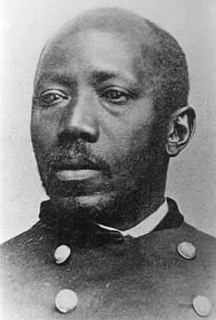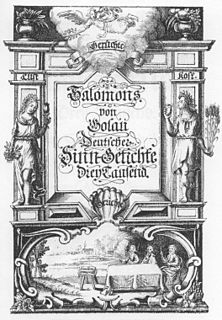A Quote by Thomas Brooks
Sin in a wicked man is like poison in a serpent; it is in its natural place.
Related Quotes
Death is not regarded as a natural affair by primitive man. Death is believed to be due to the intervention of some malevolent or at least not well disposed power. Normally it should not take place. So we have all through history crude explanations of death, as e.g., the influence of the serpent, the devil, sin.
St. Augustine teaches us that there is in each man a Serpent, an Eve, and an Adam. Our senses and natural propensities are the Serpent; the excitable desire is the Eve; and reason is the Adam. Our nature tempts us perpetually; criminal desire is often excited; but sin is not completed till reason consents.
Man and his deed are two distinct things. Whereas a good deed should call forth approbation and a wicked deed dis-approbation, the doer of the deed, whether good or wicked always deserves respect or pity as the case may be. Hate the sin and not the sinner is a precept which though easy enough to understand is rarely practised, and that is why the poison of hatred spreads in the world.
Let your tears fall because of sin; but, at the same time, let the eye of faith steadily behold the Son of man lifted up, as Moses lifted up the serpent in the wilderness, that those who are bitten by the old serpent may look unto Jesus and live. Our sinnership is that emptiness into which the Lord pours his mercy.
Jesus reminds us that the good life combines the toughness of the serpent and the tenderness of the dove. To have serpent-like qualities devoid of dovelike qualities is to be passionless, mean, and selfish. To have dovelike without serpent-like qualities is to be sentimental, anemic and aimless. We must combine strongly marked antitheses.
The Bible has come under fire for making woman the fall guy in man's cosmic drama. But in casting a male conspirator, the serpent, as God's enemy, Genesis hedges and does not take its misogyny far enough. The Bible defensively swerves from God's true opponent, chthonian nature. The serpent is not outside Eve but in her. She is the garden and the serpent.
A person who suffers bitterly when slighted or insulted should recognize from this that he still harbors the ancient serpent in his breast. If he quietly endures the insult or responds with great humility, he weakens the serpent and lessens its hold. But if he replies acrimoniously or brazenly, he gives it strength to pour its venom into his heart and to feed mercilessly on his guts. In this way the serpent becomes increasingly powerful; it destroys his soul's strength and his attempts to set himself right, compelling him to live for sin and to be completely dead to righteousness.

































